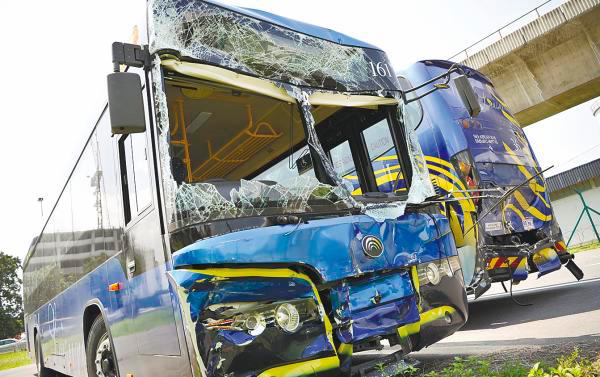THE recent revelation of 14 bus drivers failing drug tests during a festival operations conducted by the Road Transport Department serves as a sobering reminder of the potential hazards lurking within our transport system.
This incident raises several pressing concerns that demand immediate attention:
Widespread problem: Is this an isolated incident confined to festive seasons or does it represent a more pervasive issue plaguing the entire transport industry, including lorry and taxi drivers as well as other public vehicles?
Employer accountability: While existing laws mandate pre-employment, random, suspicion-based and post-accident drug and alcohol testing for commercial drivers, questions remain regarding the effectiveness of these measures and the diligence of employers in their implementation.
Conflict of interest: Could a shortage of qualified drivers incentivise companies to relax testing protocols or turn a blind eye to potential issues, prioritising short-term operational needs over the safety of passengers and road users?
Loopholes and effectiveness: Are there loopholes in the current testing protocols that allow drivers to evade detection? Additionally, are the testing methods comprehensive in identifying drug use?
Addressing root cause: In addition to enhanced enforcement, what other proactive measures can be implemented to tackle the underlying causes that may drive drug use among transport personnel?
Root causes and solutions
Compensation structures: Do certain pay structures, such as incentivising trips over fixed salaries, encourage drivers to work excessive hours, potentially making them reliant on stimulants to stay awake? This is especially concerning for high-risk drivers transporting hazardous materials and chemicals where fatigue can lead to catastrophic consequences.
Work-life balance: Are drivers subjected to unrealistic schedules or pressure to meet quotas, leading to stress and reliance on drugs as a coping mechanism?
Mental health and access to support: Do transport companies offer mental health resources and support for their drivers who may face unique challenges and stressors?
Learning from best practices: We can draw insights from industries with stringent safety protocols, such as oil and gas companies, which conduct regular and comprehensive drug testing. Implementing more frequent random testing and exploring advanced testing methods can ensure wider drug detection.
Robust training and education: Provide mandatory training programmes on the dangers of drug use and addiction as well as promote mental health awareness and stress management techniques to all drivers in the transport industry.
Employee support and confidential reporting: Establish confidential reporting systems for drivers to report concerns about drug use or fatigue without fear of retribution.
Focus on well-being: Foster healthy work-life balance through fair scheduling practices and adequate rest periods.
These are just a few examples, and a thorough investigation is necessary to identify the specific root causes within the transport industry.
Ultimately, the safety of everyone on the road is paramount. We urge the authorities, employers and the public to collaborate in investigating root causes, strengthening enforcement and implementing comprehensive solutions. Only through such collective efforts can we create a safer and more responsible transport system for everyone.









